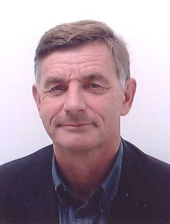“Our role is not just to sell a bottle of water or a cup of yoghurt. It’s much more than that. We need to look after our ecosystem, and what is more important in our ecosystem than the farmer selling to us milk, fruits, coffee, chocolate and so forth?”
These words come from Frank Riboud, Chairman, Board of Directors at Danone, and sum up the way big businesses are now looking at their supply chains. We know that smallholders make up over 70 per cent of the world’s production of raw materials – that’s the cocoa, sugar and vanilla that businesses buy in huge quantities to make your favorite foods. They depend on these farmers. Yet millions of them remain impoverished, struggling to produce their crops on degraded lands, with limited access to the tools, technology and skills they need to boost their production, protect the environment and secure their own livelihoods.
This has to change. And major companies like Danone, which buys millions of tons of commodities a year from smallholder farmers, have the power to dramatically move supply chains, and the responsibility to do that- particularly in light of the focus on the private sector’s contribution to mitigating climate change at the United Nations COP21 in Paris this December. By investing in smallholder farmers, businesses will benefit from not only being able to reduce the volatility of the price, volume and quality of the raw agricultural goods they source, but they can also make significant headway towards several of the Sustainable Development Goals proposed by the UN relating to eradication of hunger, building resilient livelihoods and safeguarding natural resources and biodiversity.
But we need innovative new models and approaches to facilitate this investment. That is why the Livelihoods Fund for Family Farming (Livelihoods 3F) was created. Launched by Danone and Mars, Inc. in 2015, this unique investment fund- which is currently open to new investors – aims to commit 120 million euros in the next 10 years to implement projects with local project developers and NGOs to help family farmers in Africa, Asia and Latin America.
Livelihoods 3F was born out of the conviction that curbing environmental destruction is intrinsically linked to fighting poverty. While environmental issues affect people everywhere, the rural poor tend to be hit hardest. Three-quarters of the 1 billion people living in extreme poverty are family farmers. With no technical means or financial resources, they are highly dependent on the production capacities of their land. The fund thus aims to restore damaged ecosystems through large-scale sustainable farming and agroforestry practices to boost the productivity, incomes and livelihoods of 200,000 smallholder farmers.
Livelihoods 3F operates as a mutual investment fund. It provides upfront financing to NGOs and cooperatives that implement projects in the field with smallholder farmers. Financial return for the fund is provided by a coalition of private and public off-takers that pay a few to benefit from the positive impacts generated by the projects, such as water savings, carbon credits, and agricultural raw materials. In this way, payment for environmental services are used to finance the development of smallholder farmers who hardly make bankable investees. The return on investment for corporates like Danone and Mars, Inc. will be positive, however, it will be lower than traditional investment funds given that their primary motivation is to join a learning platform to transform their supply chains.
An example of a typical Livelihoods 3F project is one we are currently structuring in Africa. We are working with a reputable NGO to implement Sustainable Agriculture Land Management (SALM) practices with 30,000 dairy and subsistence farmers. The project will boost their productivity by 30 percent and also have a significant impact on local water resources and carbon through increased soil fertility and trees. The fund will invest €4 million and get a return of €5 million through fees paid by a coalition of private and public off-takers to benefit from the externalities generated by the project, such as a dairy company that will benefit from assured volumes of high-quality milk, the local government who has an interest in protecting biodiversity, and carbon credit buyers.
My vision for Livelihoods 3F germinated while I served as Vice President of Sustainability at Danone. I truly believe that innovation is what good businesses do best. They’re all about creating new sources of value. While NGOs and governments play an essential role in mitigating climate change and poverty reduction, they can’t possibly solve these complex problems alone; business innovation is essential. In my view, the challenges of sustainable agriculture can only be met if companies develop radically different approaches to business models. This is what the fund aims to achieve. Through innovative models and public/private partnerships we can not only end hunger, achieve food security and improved nutrition, and promote sustainable agriculture but also preserve our environment and its shrinking supply of natural resources.


